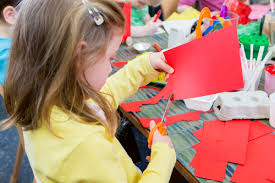You may have heard the quote “never do for a child that which they can do for themselves” and wondered how to implement this in your parenting. After all it can be hard to watch your child struggle with a task. You may notice some of your own anxiety or uncomfortable feelings creeping in while watching your child work through something. Or you may just want to hurry them along for time’s sake. However, this can create “learned helplessness” in children. So how do you help your child develop a positive sense of self?
Experience the Struggle
Children need opportunities to practice feeling competent and capable. When we do for a child what they can do for themselves, we rob them of the opportunity to practice. When parents provide their child with the chance to problem solve, struggle with a developmentally appropriate problem, and figure it out, children learn that they are capable and that they can do it. They feel empowered and proud of their abilities. This helps children develop a positive self-concept.
Unconditional Acceptance
When you communicate unconditional acceptance of our child, we let them know that we believe in them no matter what the outcome. Children need safety to take risks. When we show that we value our child and the relationship above all else, children learn it is safe to take risks, try new things, and be accepted no matter what happens.
Encouragement
Encouragement is about recognizing the child’s contributions and efforts. When we encourage a child, we communicate our belief that they are capable. In turn, children begin to believe they are capable. So when we see our child struggling with a task, we can encourage them to let them know we believe in their ability to problem solve and figure it out.
We want to raise kids who believe in their abilities to work through challenges and handle what life presents to them. We want them to feel capable and competent. So next time your child goes to complete a task, notice what your own feelings are as a parent. Are you “saving them” from the struggle? Or can you convey to your child that you believe they are capable of figuring it out. Allow your child the opportunity to practice these important skills and you will see a change in your child’s sense of self.


